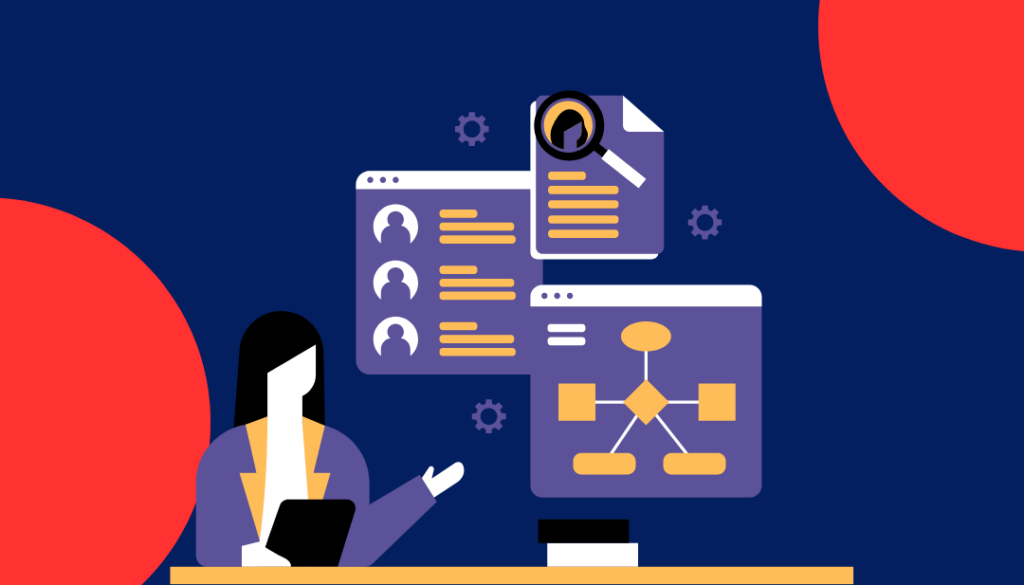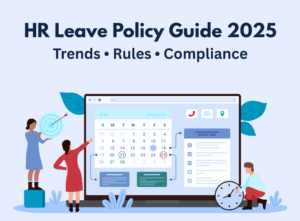In today’s fast-paced business world, efficiency is crucial to organizational success. Companies strive to optimize their operations and enhance productivity to stay competitive. One area that plays a pivotal role in achieving efficiency is the management of human resources. Recognizing this, organizations have turned to HRMS (Human Resource Management System) self-service solutions to empower employees and streamline HR processes.
Gone are the days of manual paperwork, lengthy approval processes, and time-consuming administrative tasks. HRMS self-service solutions have revolutionized how employees interact with HR departments, providing convenient access to information and services at their fingertips. This technological advancement has proven to be a game-changer, bringing numerous benefits to employees and organizations.
Maximizing Efficiency and Empowering Employees through Human Resource Management System
Let’s see what role does Human Resource Management System plays in empowering employees.
- HRMS self-service solutions provide employees with greater control over their HR-related tasks.
- Employees can conveniently update personal information, submit leave requests, access pay stubs, and enroll in training programs using the HRMS platform.
- Employees can take charge of their HR management by eliminating paper-based processes and reducing dependence on HR personnel.
- The increased control empowers employees and contributes to their satisfaction and autonomy.
- HRMS solutions streamline processes, saving time and enhancing efficiency for employees.
Moreover, HRMS self-service solutions significantly improve efficiency by accelerating HR processes. With self-service portals accessible 24/7, employees no longer have to wait for HR personnel to process their requests manually. Instant access that an employee gets eliminates delays, reduces administrative overhead, and frees up valuable time for HR professionals to focus on more strategic initiatives. Also, it creates a streamlined workflow that allows HR departments to handle higher-value tasks, such as talent development, employee engagement, and strategic workforce planning.
Employee Self-Service and HRMS Integration help to Boost Productivity
Implementing Human Resource Management System brings many benefits, including promoting organizational transparency and accountability. By granting employees real-time access to their HR-related information, these solutions empower individuals to manage their professional journeys actively.
One significant advantage of HRMS solutions is that employees can track their progress easily. They can view their performance evaluations, monitor their achievements, and gauge their organizational growth. This real-time access to performance data enables employees to clearly understand their strengths and areas for improvement, fostering a sense of ownership and motivation to strive for excellence.
In addition, HRMS enables employees to stay well-informed about company policies and procedures. They can access the latest updates, guidelines, and protocols, ensuring they are aligned with organizational expectations.
The transparency offered by HRMS in companies eliminates ambiguity and promotes consistency in decision-making, fostering a culture where employees know the rules and regulations governing their work environment.
Why is transparency important, and how HRMS promotes it in an organization?
HRMS fosters a culture of open communication. When employees access their HR-related information, it encourages discussions and clarifications, allowing for better collaboration between employees, managers, and HR departments. So, Open organizational communication enhances employee engagement, as employees feel valued and included in important administrative matters.
Furthermore, this transparency builds trust among employees. Also employees accessing the same information as their managers and HR personnel eliminates any perception of favoritism or bias. Employees can confidently rely on the system’s integrity, knowing that decisions and actions are based on accurate and up-to-date information. And this transparency fosters a sense of fairness and builds trust within the organization.
Moreover, the culture of transparency and open communication nurtured by HRMS contributes to employee loyalty. When employees feel well-informed, supported, and empowered in managing their HR-related affairs, they develop a sense of commitment toward the organization. They are more likely to be committed to their work and the organization’s overall success, leading to increased employee retention and satisfaction.
Worried about cost savings? Try implementing HRMS tools and check how it helps in cost saving.
- Implementing HRMS tools can lead to significant cost savings for organizations.
- By reducing manual processes and paperwork, companies can decrease administrative expenses associated with tasks like data entry, filing, and document management.
- HRMS solutions eliminate the need for printing forms and documents, reducing printing costs.
- Automating data entry and record keeping in HRMS tools helps minimize errors and inconsistencies, avoiding costly mistakes that may arise from manual data entry.
- Accurate and reliable HR records facilitated by HRMS solutions contribute to compliance with regulatory requirements, mitigating the risk of penalties or fines.
- HRMS tools also help streamline processes, allowing HR professionals to allocate their time more efficiently and focus on strategic initiatives rather than repetitive administrative tasks.
- With HRMS, organizations can effectively manage employee benefits, reducing inaccurate or inefficient benefits administration costs.
- HRMS tools provide centralized access to information, eliminating the need for physical storage and reducing space requirements and associated costs.
- The cost savings achieved through implementing HRMS tools can be redirected toward other areas of the organization, such as employee development, training programs, or technology upgrades.
- Adopting HRMS solutions offers both efficiency gains and tangible cost savings for organizations, enabling them to optimize their resources and allocate them strategically.
How to successfully implement HRMS solutions?
Successfully implementing Human Resource Management System requires a comprehensive change management strategy. Organizations must invest in training programs and communication campaigns to ensure employees are comfortable using the self-service portals and understand the benefits. Clear guidelines and user-friendly interfaces are essential to overcome resistance to change and encourage adoption.
Final Words
HRMS self-service solutions have transformed how employees interact with HR departments, bringing efficiency, convenience, and empowerment to the forefront. Organizations can unlock their full potential and drive productivity by placing efficiency at employees’ fingertips. The benefits of HR software tools are far-reaching, improving employee satisfaction, streamlining processes, promoting transparency, and contributing to cost savings. Embracing this technology-driven approach is a step toward creating a modern, agile, high-performing workforce poised for success in the digital era.




